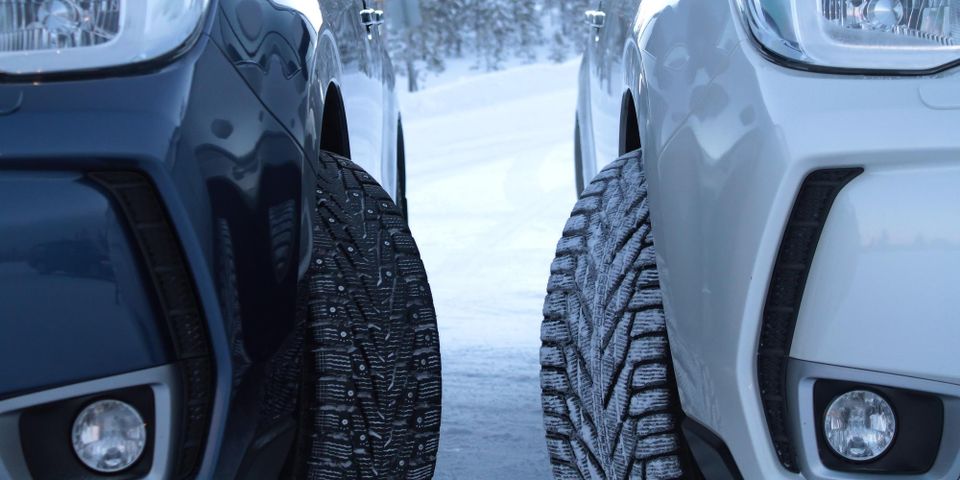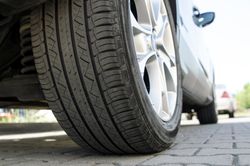
With cold weather here, wet weather and risky road conditions may have you considering new tires for the winter and snow. You're likely considering the cost and whether it's possible to drive winter tires year-round to save money. In the early spring, it can often be difficult to know when to change winter tires for all-season or summer tires because the weather can be unpredictable. However, come summertime, driving on the wrong tires has disadvantages. Here's what you should know about using snow and winter tires year-round.
What Are Winter Tires?
Winter tires are made using a flexible rubber compound designed to deliver grip and traction in snow, slush, and icy conditions. They’re not just for snow; they’re also built to handle all types of cold-weather road conditions and perform at their peak in temperatures below 45 degrees Fahrenheit. Depending on the variety you choose, winter tires may or may not include studs, which provide added traction by digging into compacted snow or ice.
What Happens When You Use Winter Tires in Summer or Spring?
They Become Soft
Because winter tires are designed to perform in low temperatures, they don’t respond well when driven on hot pavement. The compound that provides the flexibility needed to grip on slush- and ice-covered roads can become overly soft, decreasing the performance of your vehicle in warm weather.
It Can Be Dangerous
 Operating winter tires on hot pavement can cause them to wear unevenly, reducing your vehicle's response time and your ability to maneuver quickly in dangerous situations. Likewise, come winter, when you need your tires to perform at their peak, the pavement-gripping grooves and winter traction features may be overworn, making your tires dangerous for use in the icy conditions they were intended to handle.
Operating winter tires on hot pavement can cause them to wear unevenly, reducing your vehicle's response time and your ability to maneuver quickly in dangerous situations. Likewise, come winter, when you need your tires to perform at their peak, the pavement-gripping grooves and winter traction features may be overworn, making your tires dangerous for use in the icy conditions they were intended to handle.
It Costs More Over Time
Because winter tires typically cost more than all-season tires, using them year-round means you're wearing out a more expensive set much faster, costing you more in the long run. Using winter tires in any other season can also cost you more at the pump. In the heat of summer, winter tires create more friction and resistance, lowering your fuel economy. To get the most value and safety out of your tires, purchase two sets designed for your specific driving conditions and swap them out when the seasons change.
For assistance finding new tires for your vehicle, contact the experts at Lee Tire in Lexington, KY. They’ve specialized in the sale and installation of used and new tires for over 20 years, and their knowledgeable technicians will guide you through the process of selecting the optimal tires for all seasons at prices you can afford. Call (859) 254-6157 to speak with a friendly sales specialist, or visit them online to learn more about their tire installation services.
About the Business
Have a question? Ask the experts!
Send your question

